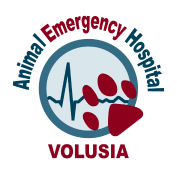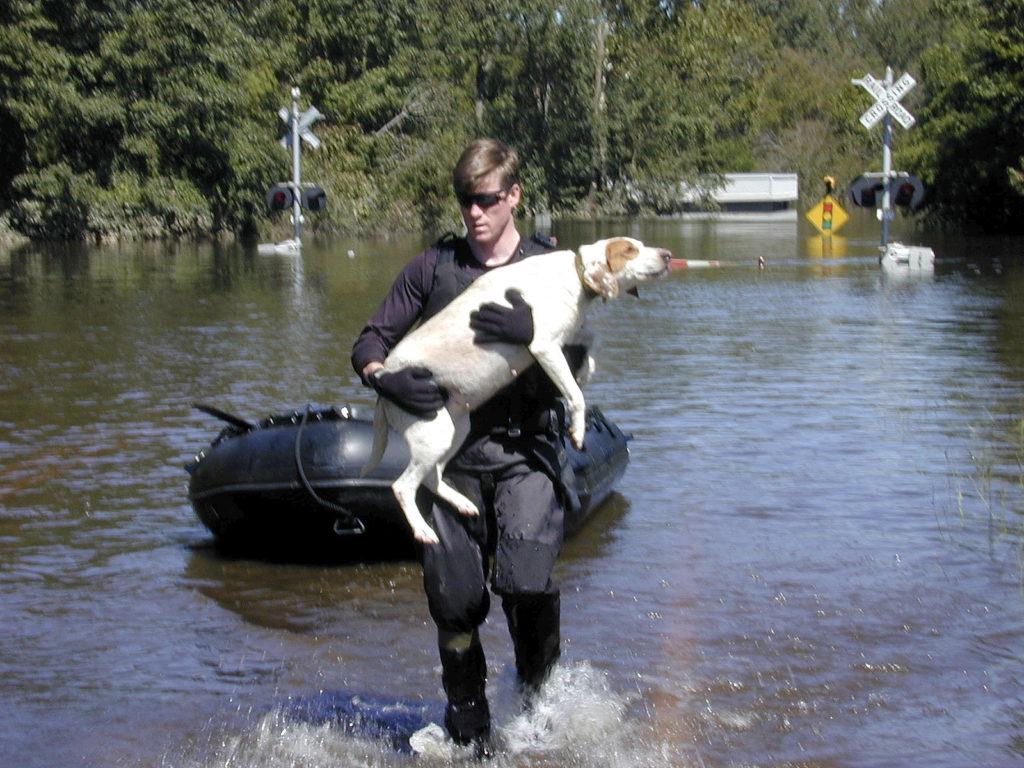Believe it or not, we are already in the middle of the Atlantic Hurricane Season (June 1st – November 30th.) And it is never too late to start preparing or creating a safety plan for your furry loved ones.
Volusia County, Florida is no stranger to hurricanes and extreme weather conditions, so that is why we want our pet parents to be prepared for all types of natural disasters.
To prevent your pet from being lost or left behind in any natural disaster follow these safety tips:
– Include your pets in your evacuation plans and even practice with them just as you would with the humans in your home
– Have a list of shelters, motels/hotels, and homes of friends or relatives that are pet-friendly
– Keep the cat carrier out with treats and favorite toys, so your feline is ready to go at a moment’s notice
– Create an emergency kit for your pets including
– First aid kit – click here for a list of items
– Extra food
– Favorite toys/treats
– Medical and vaccination records
– Medications
– Water bowls, travel beds, doggy bags, kitty litter, newspapers, etc.
– Have your primary care veterinarian and local emergency animal hospitals phone numbers on hand (Add our phone number into your cell phone for easy access)
– Keep taking lots of photos of your pet, so you have the most recent picture of your furry loved one in case he or she does go missing
It is essential to include your furry family member(s) in your disaster preparedness. If you still don’t know where to begin in planning for natural disasters, we suggest learning from the experts.
Below is a list of resources we hope you will find helpful in preparing for any type of emergency:
The Red Cross Pet Disaster Preparedness – this article includes more information on what your cat or dog will need in any natural disaster.
Volusia County Animal Preparedness – our own Volusia County includes essential information about bringing your pet to a shelter and what to do with livestock.
Volusia County Shelters – a list of local shelters in case of a hurricane or other natural disasters. Make sure to be familiar with your local shelter and if they accept pets.
CDC Pet Disasters – an extraordinary wealth of information on the common types of diseases dogs and cats can pick up during a natural disaster. It is critical to make sure your pet has updated vaccinations and heartworm and flea medication.
FEMA Prepare for Pet Emergencies – we recommend downloading and keeping this pamphlet from FEMA handy. It is chock full of information on what to do in several emergencies.
Humane Society Animal Rescue Tips – includes vital information on how pets are rescued and what owners can do to prevent their pets from getting lost.
We understand that hurricanes, storms, and other disasters are scary, overwhelming, and can happen suddenly. However, if it is not safe for you to stay behind, it is definitely not safe for your pets who might even be more afraid and skittish by the violent weather. Our animals are essential members of our families, and we want to ensure all of our family members are safe during and after a hurricane.
Animal Emergency Hospital Volusia has helped many pets and their families during natural disasters – from providing emergency care during hurricanes to housing lost and displaced animals. You can trust that AEHV is a safe and secure animal hospital during significant storms, as we have our own safety and natural disaster preparedness for our staff and pet patients.

